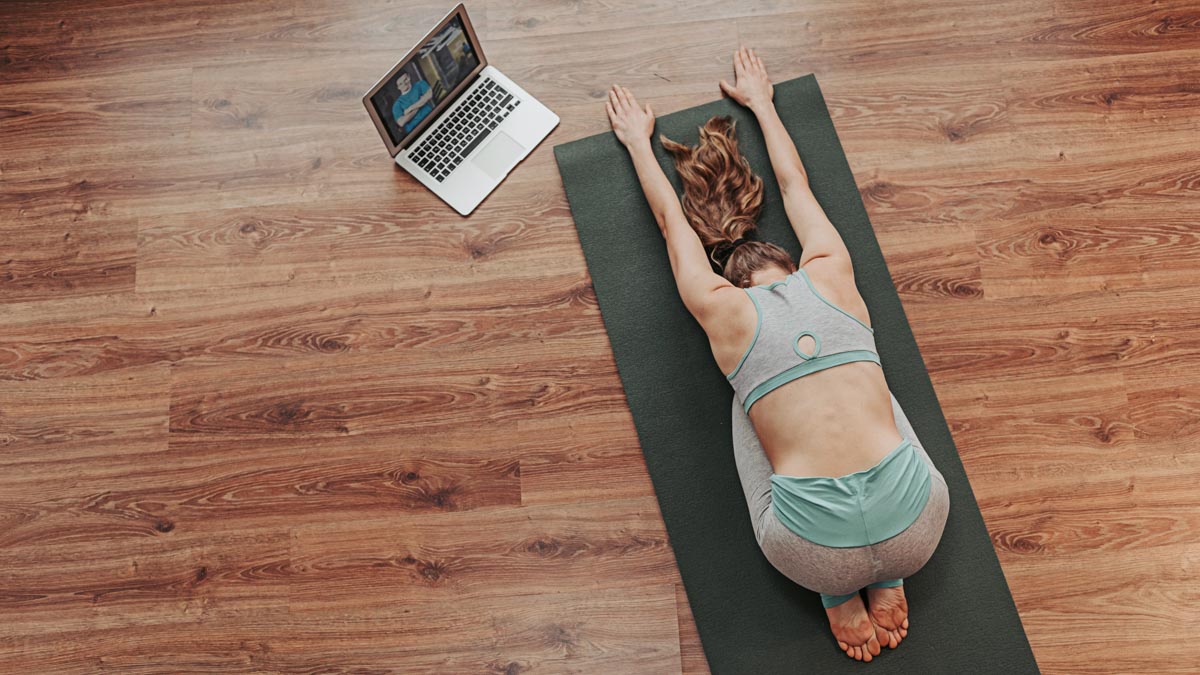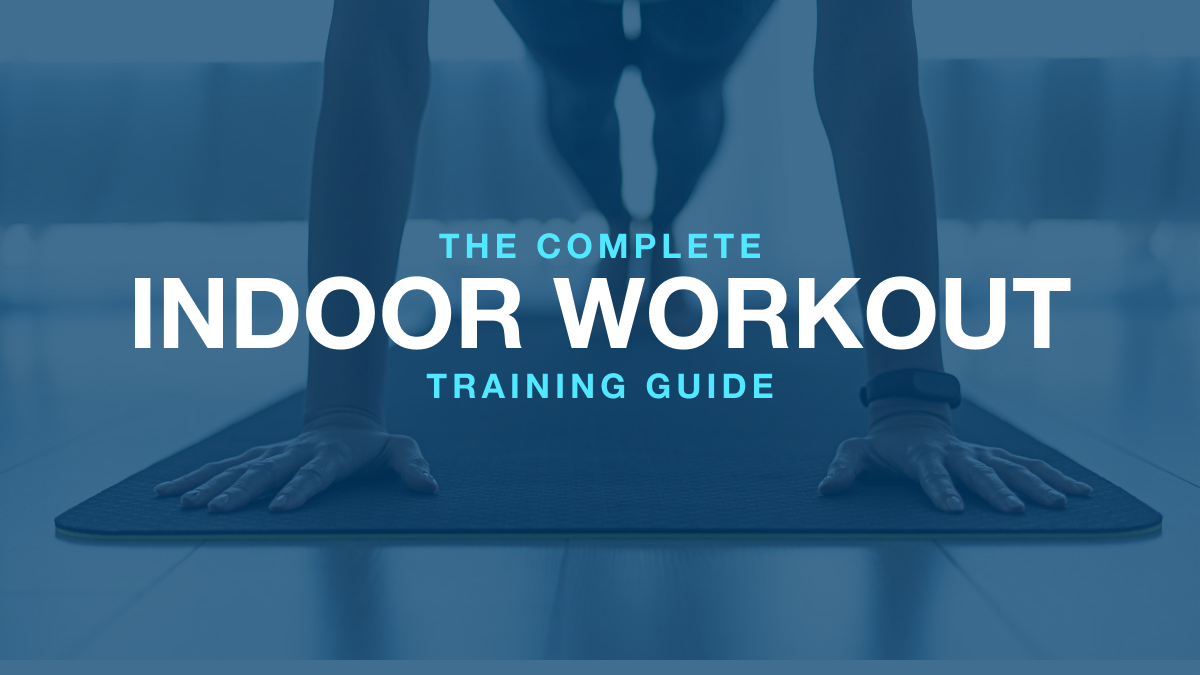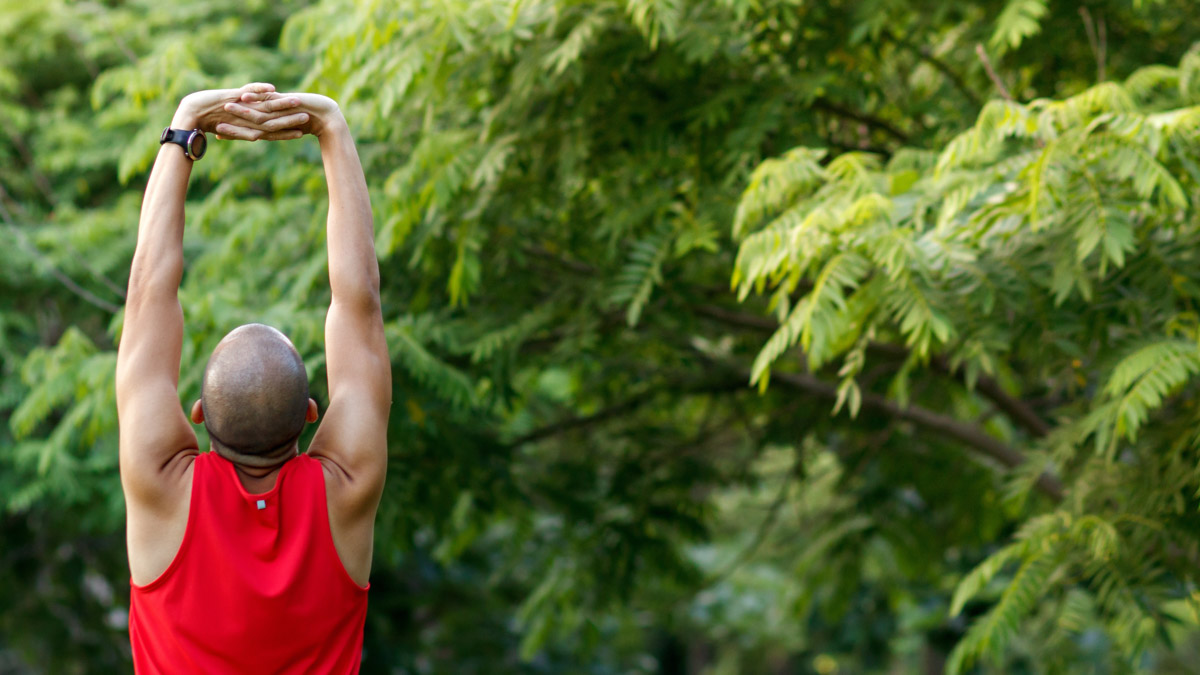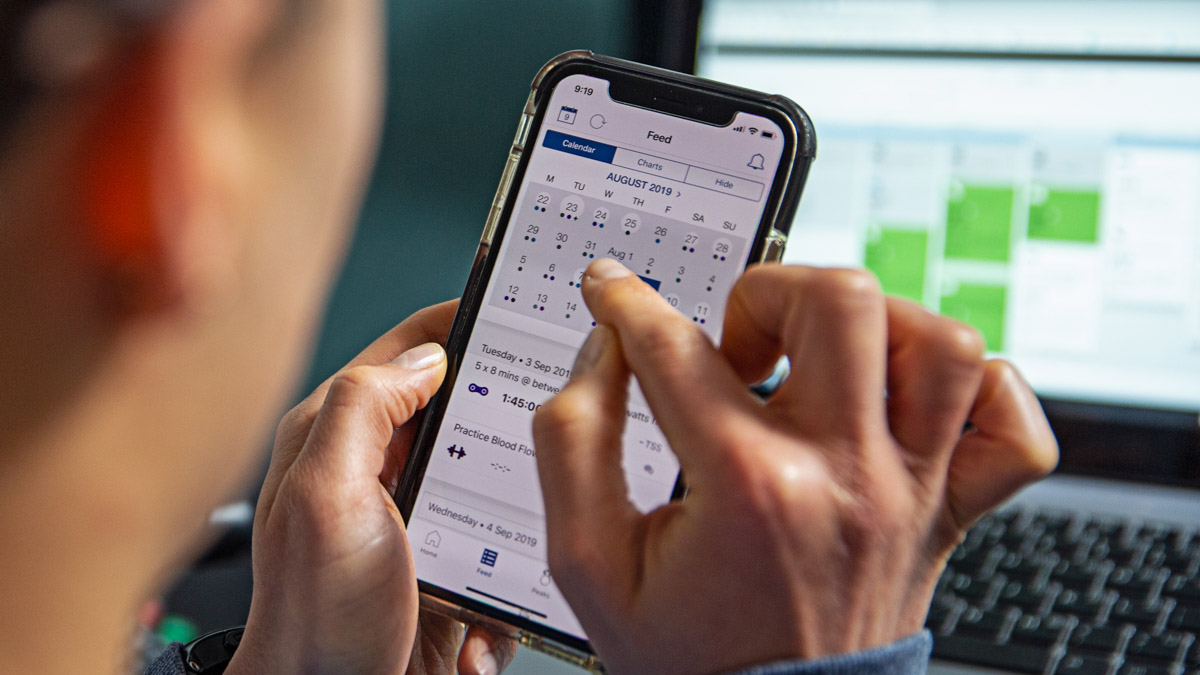We are living in an unprecedented time, as personal freedoms are curtailed for the good of individual and world health through the COVID-19 Pandemic. For athletes who are used to orderly management and goal chasing, being removed from schedules and training environments can lead to feeling uncertain and displaced.
Fortunately, there are some simple actions you can take to feel better. Psychologists have long recommended managing stress and anxiety by determining what you can control, thinking positively, and making a plan. Athletes and coaches who are navigating uncertainty and risk over the next few weeks can try the same approach.
Determine What You Can Control
You can’t control what’s going on globally, but you can control your personal flow of information. Facts are evolving rapidly, but action items are scarce, which can contribute to a feeling of helplessness. Instead of checking for news every few minutes, set your phone to receive important local updates that may affect you and your family—and then put it down. Set aside a time to catch up on all the news just one or two times a day, and focus on other things in between.
What should you focus on instead? Anxiety can lead to distraction, so keep your mind fresh and focused with a list of goals (like chores, work items, etc.) for each day. When you feel concentration and well-being start to slip, you can re-focus on checking things off your list. If you are home with family members, also make sure you carve time for yourself and each member of the household. For the athlete, this time might be an indoor ride, a run or a yoga session.
Think Positively
These are highly unusual times. No one has direct experience or answers for solving the current crisis, but everyone with knowledge and skill is working towards a solution. Remember, how you approach the ambiguity of postponed event dates and derailed training schedules (or just the disruption to daily life) is up to you.
There is a silver lining to forced change; for athletes this may mean more time to rest or train, or even a required move from habitual behaviors and patterns that weren’t always beneficial. Creative solutions often rise from adversity: recognize that you are strong, resilient and resourceful and attack the day.
Make a plan
This week, we’ve heard from athletes and coaches in a range of unique situations, including loss of all access to the outdoors and recreational facilities. If you have a compromised immune system or just aren’t feeling it, by all means, permit yourself to take a break and avoid introducing more stress to your system. But keep in mind that staying fit can improve physical and mental health. Even without an imminent race goal, having a plan and keeping on it is innately good for you.
If you decide to keep training, a good dose of creativity and flexibility can save the day. We recommend using technology to reach out and connect with others, try virtual workouts with online platforms, or simply use phones and apps that allow live connections. Having a plan that accommodates your new environment (and keeps you connected to the athletic community) can help ease apprehension.
A Week of Social-Distance-Friendy Workouts
We’ve come up with a sample plan for a triathlete with a solid base of fitness, who finds themselves stuck indoors with only a bike trainer, a jump rope and a few dumbbells and stretch bands. Try a week, then think outside the box and add your own creative twists.
Monday:
50-65 minute endurance ride, HR and Power Zone 2, RPE Borg Scale 1-3
30 minute Yoga for Surfers with Adriene: balancing to start the week
Tuesday:
7 min yoga warm up with Adriene
75 minute sweet spot ride, 20 min warm up, 2×15 min at 88-93% threshold, or RPE 4-5. Recovery 3-4 min spin, then a 20 min cadence drills. Cool down 10-15 min.
5 core exercises to make you stronger (if you don’t have a kettle bell try filling a jug with water!)
Wednesday:
65 minute ride with low cadence standing reps at the end, 50 minutes of easy building into steady, Zone 2, RPE 1-3, then finish with 10×30 sec stand and push a really tough gear (cadence 55-65), 30 sec sit and spin lightly, finish with 5 min of light spinning
22 min Hip Opening Yoga
Short strength: 2×8-10 push ups, jump squats pull ups, chair dips, bicep curls (anything can work for weights here), goblet squats
Finish with: band exercises
Thursday:
Brick, with a twist:
Bike: 20 min light spin, zone 1- RPE 1-2
Run: Stairs, hallway, or yard sprints: Pop off the bike, pull on the shoes: 10×15 sec fast/45 sec jog- you can do up and down stairs as needed, use a hallway, or get in the yard and use a grassy stretch or driveway
Bike: 20 min zone 3 tempo, RPE 4-6 cadence 90+ rpm
Run: choose a jump rope for 10 min, or a yard loop: goal here is steady for 10 min. Rest 1 minute then: 5x squat jumps, 5x backward lunges each leg, 30 sec skate hops. REPEAT.
Friday:
Day off or choose an online full yoga session- many locations are offering classes from the studio, so set up a rug or yoga mat and get loose, strong and centered
Optional: One Hour Workout: Strength, Cardio and Yoga Fusion
Saturday:
Bike: 2-3 hours of indoor riding, based on goals and total volume leading in. Predominantly zone 2, but opt for a group ride on Zwift, a TrainerRoad endurance ride, or facetime with a friend and chat while you ride.
Optional: include a 30 second max effort every 15 minutes and a 15 second standing/climbing rep every 10 min.
Short strength: 2×8-10 push ups, jump squats pull ups, chair dips, bicep curls (anything can work for weights here), goblet squats
Sunday:
Warm Up with Steph Bruce
Run: aim for a 10 minute warm up, 2×20 min HRZ2 (3 min rest/jog), 10 min easy- IF that’s too much running to fit in your smaller circumstances, consider 10 min of spin, 10 min of stairs or 5 of stairs and 5 jumprope, hallways, yard at Z2, 20 min ride Z2 cadence mimics run cadence 85+ rpm, 10 min easy spin or walk.
Yoga: add in a class from your local studio
Whether the disruptions you face are major or minor, remember that the actions you take now can save lives later. Changing up your routine might feel like a burden, but it may turn out to be just the change of pace you need to reach the next level when things return to normal. Wash your hands, protect your mental and emotional resources, and focus on what you can control. The athletic community is resilient, and we will get through this!









